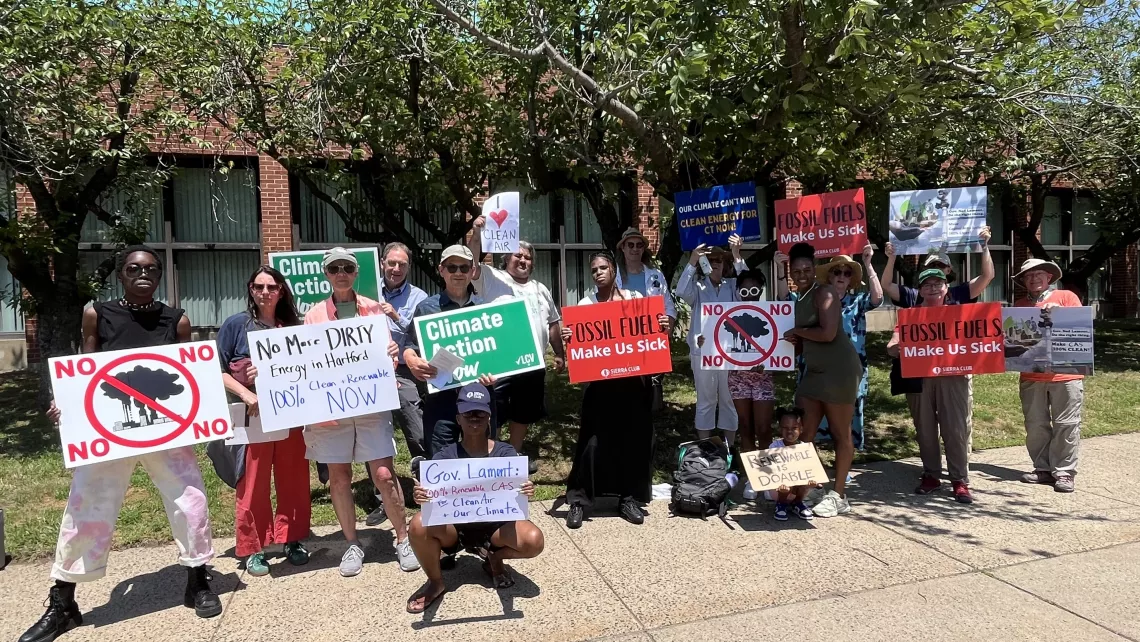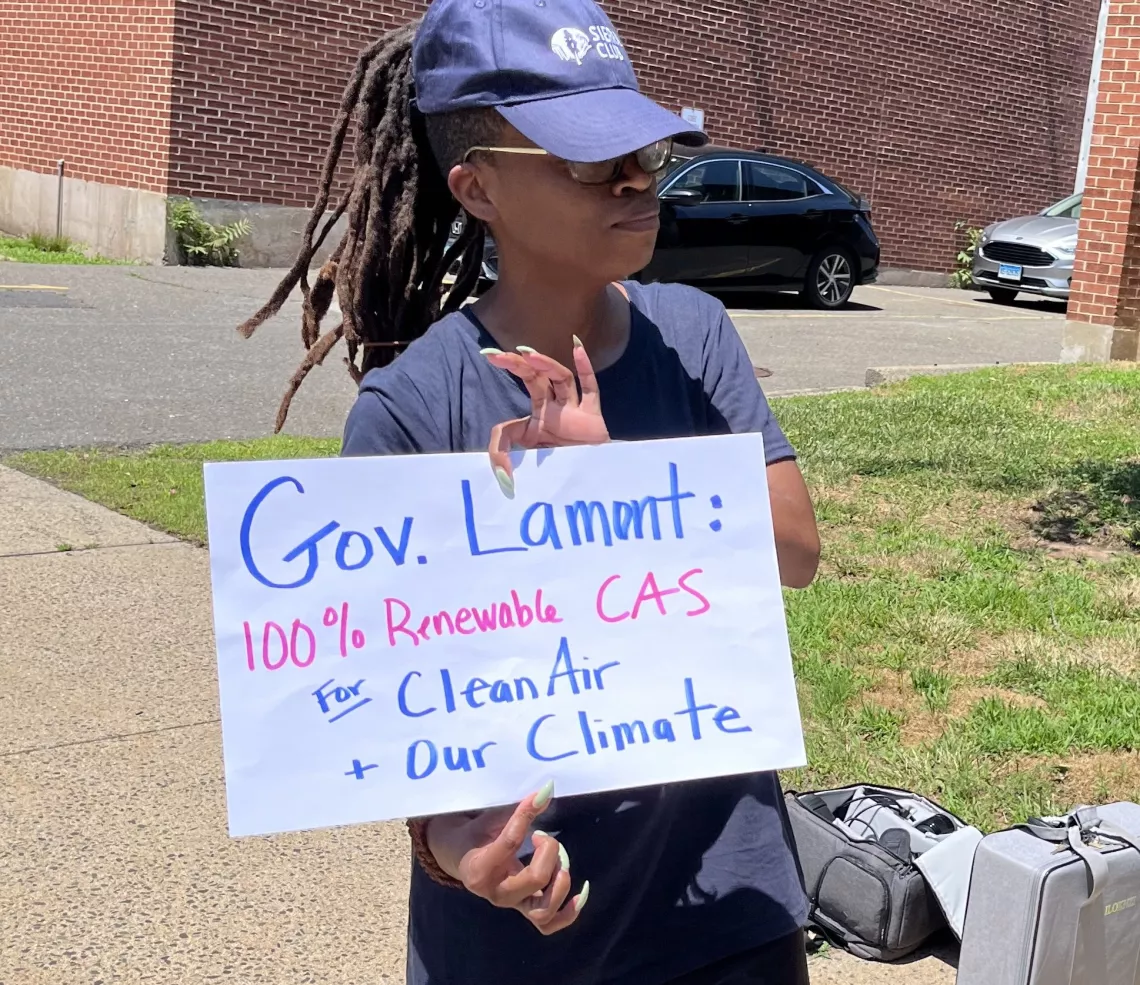Bianca Sanchez, bianca.sanchez@sierraclub.org
HARTFORD, CT. – The Department of Administrative Services (DAS) released a Decarbonization Study exploring possible replacements for the Capitol Area System, a three-decade-old energy plant with a history of polluting Hartford’s air. The report follows years of advocacy by local environmental and climate justice groups to replace the facility with a 100 percent clean, renewable energy alternative. Today, residents rallied at the facility to show continued support for a clean energy solution and to decry the inclusion of fossil fuel options in the study.

The State of Connecticut purchased the 35-year-old Capitol Area System plant in October 2022. In the decades it operated as an co-generation power plant, the Capitol Area System Central Plant released harmful air pollutants into Hartford, contributing to the city’s “asthma capital” and environmental justice community designations. While the central plant no longer produces electricity for the grid, the Capitol Area System currently provides hot, cold, chilled, and steamed water for heating and cooling to 15 state-owned and private buildings in Hartford. It is in dire need of replacement.
In the Decarbonization Study, DAS outlined three different scenarios for refurbishing the facilities; installing ground-source electric heat pumps, installing a hybrid combination of ground-source heat pumps and an electric boiler, or installing a natural gas boiler. The clean 100 percent ground-source heat pump options presents an opportunity for residents to save on energy costs long-term and reap immense climate and health benefits by reducing harmful emissions. A fossil-fueled alternative would push Connecticut further behind in its decarbonization efforts and tie the Hartford communities to continued poor air quality.

Buildings currently powered by the Capitol Area System include the Legislative Office Building, the Office of Policy and Management, the CT Supreme Court, the State Library, the Appellate Court, the Department of Energy & Environmental Protection, the State Office Building, the Bushnell and more.
During and following the rally and decarbonization study release, local organizations have issued the following statements:
“Governor Lamont must put action behind his commitments and choose a 100 percent clean and renewable upgrade for the Capitol Area System,” said Alycia Jenkins, Campaign Organizer at Sierra Club Connecticut. “While it is disappointing to see that the Department of Administrative Services has included fossil fuel as a replacement option, the Study clearly shows that the 100% clean and renewable options will result in significantly greater reduction of climate- and health-harming pollution.”
“Can you hear us, Ned Lamont?” asked Tenaya Taylor, Executive Director, Nonprofit Accountability Group. “Can you hear the sound of our labored breath as we beg for environmental justice? The climate is in crisis. We need green energy today.”
“Do not bind Hartford to a future of poor air quality and health risks,” said Quanishe Flippen, Member, Nonprofit Accoutability Group. “Choose the clean energy path. Choose the health of our children. Choose the future we all deserve.”
“The CAS can play an important role in showing Connecticut how to decarbonize buildings district by district instead of building by building,” said Peter Millman, Vice President, People's Actions for Clean Energy.
About the Sierra Club
The Sierra Club is America’s largest and most influential grassroots environmental organization, with millions of members and supporters. In addition to protecting every person's right to get outdoors and access the healing power of nature, the Sierra Club works to promote clean energy, safeguard the health of our communities, protect wildlife, and preserve our remaining wild places through grassroots activism, public education, lobbying, and legal action. For more information, visit www.sierraclub.org.